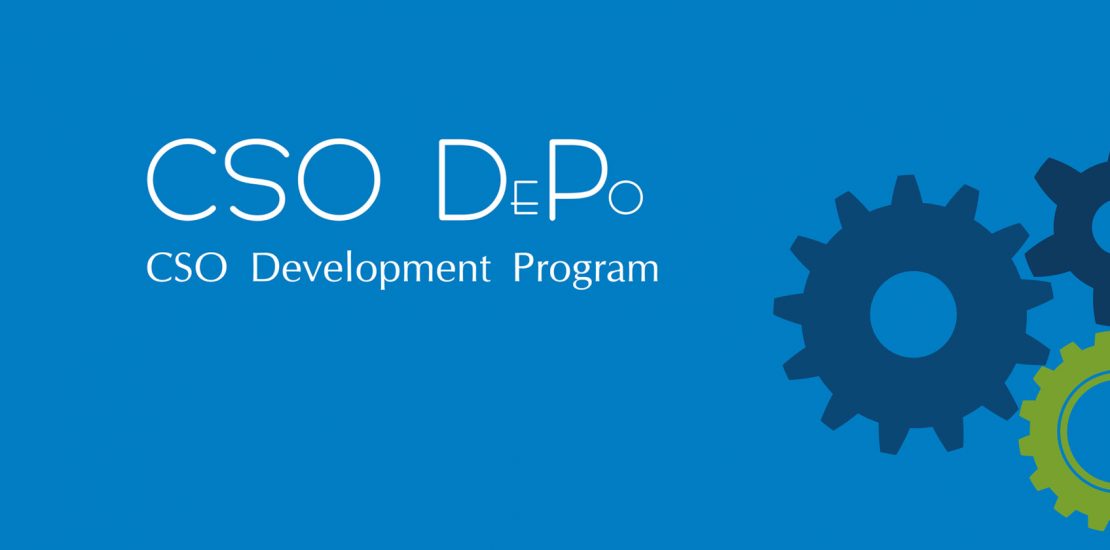- November 24, 2017
- Posted by: admin
- Category:


The “CSO DePo: CSO Development Program” fosters sustainable civil society development through strengthening the capacity of CSOs as critical actors to advance and oversee reform, improve services and contribute to the development of more effective governance in the economic, democratic, health and social spheres.
“CSO DePo” started in June 2014 and it is being implemented by a Consortium consisted of 6 organizations.
The goal of the program is to expand the pool of strong local CSOs by delivering capacity strengthening services so they may become successful actors in building a ‘more engaged, prosperous and well-governed Armenian society’ and successful potential partners for international donors.
The program is being implemented in several stages. First, the Consortium develops a special Armenia-tailored CSO Capacity Measurement Tool. The Consortium then proceeds with building its own capacities and conducting a CSO Comprehensive Market Assessment, which results in the elaboration of several CSO sustainability models to be offered to beneficiary CSOs. At the next stages, the Consortium establishes a CSO Management School that becomes a hub of support to civil society. The School offers trainings on project management, organizational development, business planning, advocacy, gender mainstreaming, service provision, and other needed skills. The School is strengthened by a Civil Society Portal (CSO Portal) that offers up-to-date tools and information on CSO development and funding opportunities. In parallel to the CSO Portal, the School establishes a CSO Multimedia Solutions facility to facilitate effective communication among CSOs and between CSOs and other stakeholders.
The Consortium expects that over the five years, up to 160 CSOs will undergo training, either in-person or on-line. At the next stage, trainings for trainers take place, and new generations of trainers graduate. The most advanced CSOs are invited to bid for accompanied grants to support their capacity development.
This project is being implemented during June 2014 – May 2019, with funding support received from the United States Agency for International Development (USAID).

